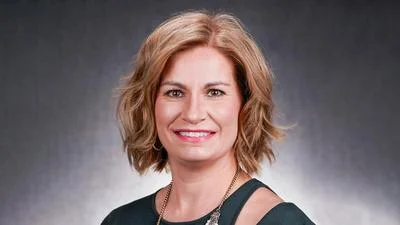Jim Joy, Minnesota State Representative of 4B District | Official Website
Jim Joy, Minnesota State Representative of 4B District | Official Website
After a delayed start to the legislative session, Minnesota lawmakers passed the state’s two-year budget during a special session this week. Rep. Jim Joy (R-Detroit Lakes) described the process as challenging but said House Republicans remained committed to protecting families from increased taxes and government spending.
“We blocked every tax hike Democrats tried to sneak in—including a massive $8 billion fifth-tier income tax hitting anyone making over $500,000, a $400 million sales tax increase, and expanding sales taxes to professional services. Minnesotans are already paying too much, and I refused to let government take even more from your paycheck,” Joy stated.
Joy highlighted the end of taxpayer-funded health care for adult undocumented immigrants, saying that program had led to higher enrollment and costs within five months. He argued that public funds should be reserved for those most in need.
He also raised concerns about recent policy changes impacting local governments and schools. In particular, he pointed out that last biennium’s expansion of unemployment insurance benefits for seasonal school employees was covered temporarily by state funds but could lead to future property tax increases as districts assume these costs. According to Joy, “Schools are struggling to fill summer positions because regular-year staff decline the work and collect UI instead. Districts face higher costs and new administrative burdens just to process these claims. The only group benefiting seems to be the union. School boards and superintendents are raising serious concerns.”
Another issue mentioned was the Paid Family and Medical Leave mandate enacted two years ago by Democratic lawmakers and Governor Tim Walz. Joy noted this program requires contributions from all employers—including nonprofits, local governments, and school districts—and is expected to strain budgets further across Minnesota. He referenced information from the Minnesota Chamber of Commerce indicating that 80% of its members already offer paid family leave benefits; he suggested that the new state-run system could actually reduce benefits for some workers.
Joy also criticized projected start-up expenses associated with implementing Paid Family and Medical Leave—citing hundreds of millions in initial costs, hundreds of new government jobs created, and an expensive IT system rollout reminiscent of past difficulties with MNLARS or MNsure systems. He added that DEED recently announced payroll taxes supporting this program will be 25% higher than first estimated—an increase of about $350 million.
Despite ongoing challenges, Joy emphasized budget reductions achieved through bipartisan negotiations: “There’s still work ahead, but thanks to an evenly split House and tough negotiations, we’ve delivered the largest government spending cut in state history—$2 billion less—and overall $5 billion less than the previous budget.”
He concluded by pledging continued advocacy for rural communities while seeking fiscal restraint at the state level: “I promise to keep fighting tooth and nail to protect your wallet, defend rural communities, and stop wasteful spending.”


 Alerts Sign-up
Alerts Sign-up